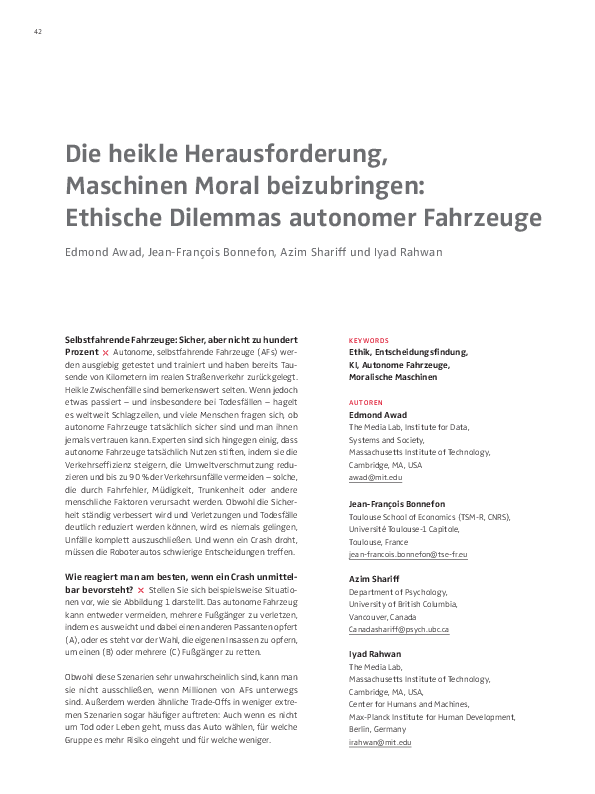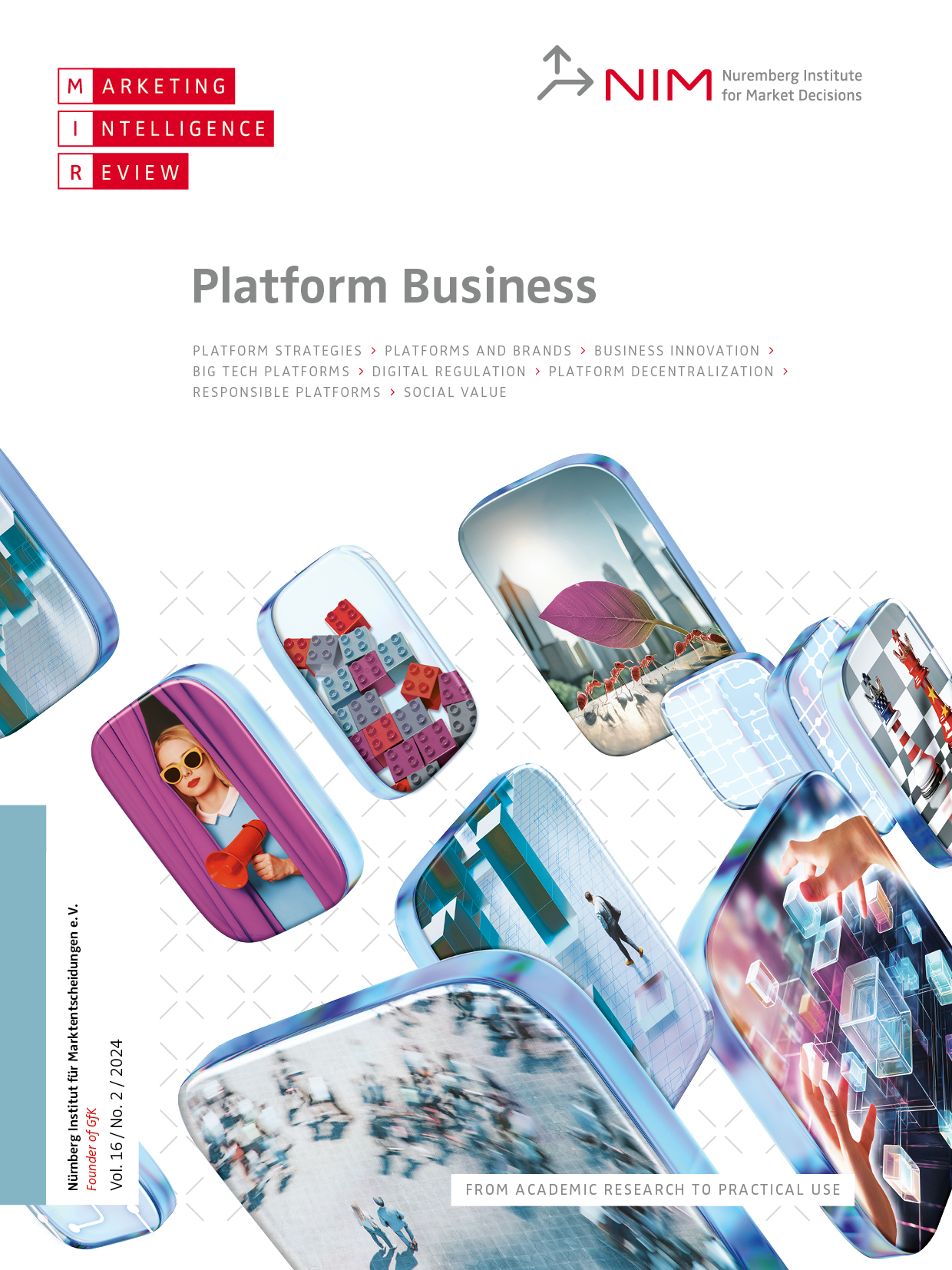 Download
Download
The Thorny Challenge of Making Moral Machines: Ethical Dilemmas with Self-Driving Cars
Edmond Awad, Jean-François Bonnefon, Azim Shariff and Iyad Rahwan
The algorithms that control AVs will need to embed moral principles guiding their decisions in situations of unavoidable harm. Manufacturers and regulators are confronted with three potentially incompatible objectives: being consistent, not causing public outrage, and not discouraging buyers. The presented moral machine study is a step towards solving this problem as it tries to learn how people all over the world feel about the alternative decisions the AI of self-driving vehicles might have to make. The global study displayed broad agreement across regions regarding how to handle unavoidable accidents. To master the moral challenges, all stakeholders should embrace the topic of machine ethics: this is a unique opportunity to decide as a community what we believe to be right or wrong, and to make sure that machines, unlike humans, unerringly follow the agreed-upon moral preferences. The integration of autonomous cars will require a new social contract that provides clear guidelines about who is responsible for different kinds of accidents, how monitoring and enforcement will be performed, and how trust among all stakeholders can be engendered.
![[Translate to English:] [Translate to English:]](/fileadmin/_processed_/e/e/csm_hildebrand_intro_ai_vol_11_no_2_de_1e0479d1e9.png)
![[Translate to English:] [Translate to English:]](/fileadmin/_processed_/3/7/csm_2019_nim_mir_ai_de_res__Kapitel_1__2fa844ec2e.png)
![[Translate to English:] [Translate to English:]](/fileadmin/_processed_/f/1/csm_2019_nim_mir_ai_de_res__Kapitel_2__52310f2f29.png)
![[Translate to English:] [Translate to English:]](/fileadmin/_processed_/2/e/csm_2019_nim_mir_ai_de_res__Kapitel_3__b6b9b04ed2.png)
![[Translate to English:] [Translate to English:]](/fileadmin/_processed_/4/d/csm_2019_nim_mir_ai_de_res__Kapitel_4__c125a66154.png)
![[Translate to English:] [Translate to English:]](/fileadmin/_processed_/8/4/csm_taylor_ai_vol_11_no_2_eng_6d2c64d841.png)
![[Translate to English:] [Translate to English:]](/fileadmin/_processed_/c/2/csm_2019_nim_mir_ai_de_res__Kapitel_6__ce9e09e186.png)


